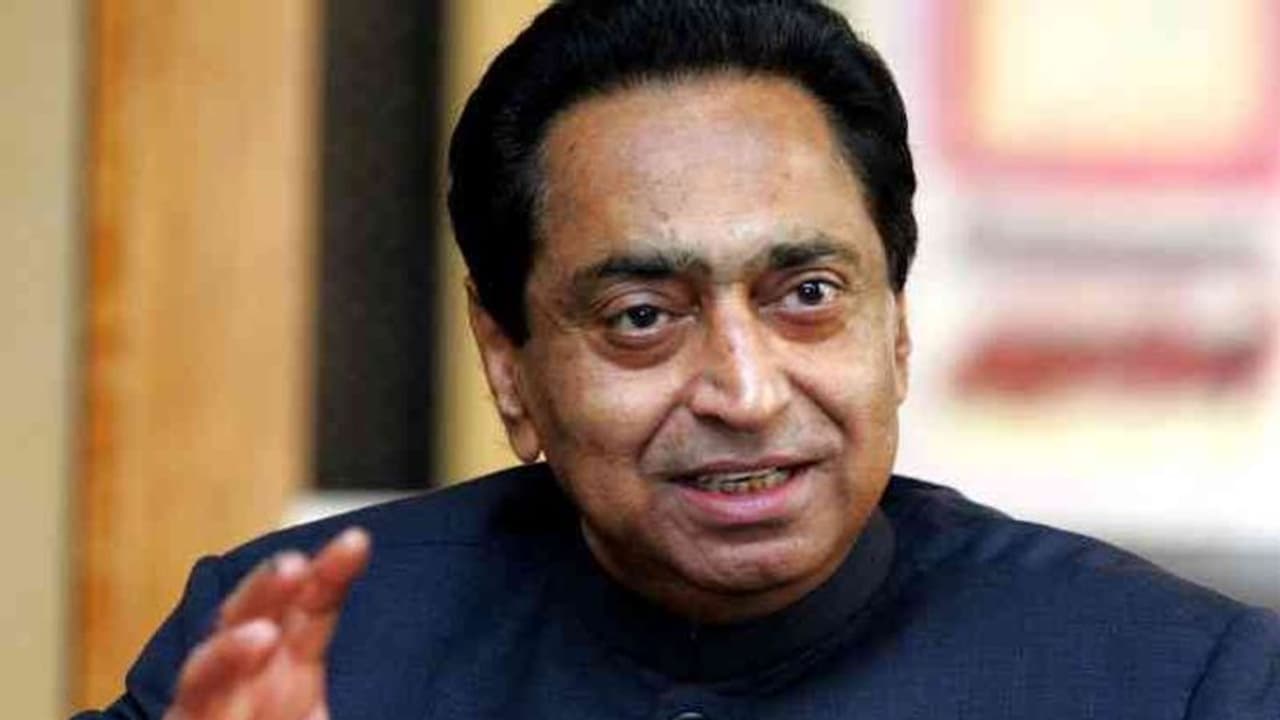Though Kamal Nath's importance in the party continued to grow in the eighties and nineties, he never extended his ambitions beyond Chhindwara even as Delhi remained his actual work base both in and out of power
Talk of Kamal Nath and you think of three things: Chhindwara, industry and commerce. It is a train of thought impossible to delink. Today if Chhindwara, a cool six-hour drive from Bhopal, is the best nursed constituency in Madhya Pradesh, perhaps even the country, it is solely due to its septuagenarian, nine-time Lok Sabha MP. Barring the 1998 LS poll in which he lost to former chief minister and Union minister Sunderlal Patwa, Nath has been the unquestioned overlord of the region. The most recent instance of his continued influence was evident from the Congress's clean sweep of all seven assembly segments of the constituency in the just held state poll. His writ, in fact, extends to a sizeable portion of the Mahakaushal belt.
Just how did this privileged Doon School chum of Sanjay Gandhi, born in Kanpur and bred in Calcutta (where father Mahendra owned a fabrication plant), adopt Chhindwara as his political borough and end up in the chief minister's chair makes for a goodly tale. Armed with a commerce degree from Calcutta's St Xavier's College, Nath plunged into business. His connect with Madhya Pradesh dates back to the Emergency days when he came scouting for orders from the MPEB and the state transport corporation for his family firm. Camaraderie with Sanjay proved useful in business as well as politics. Though Sanjay appointed him a member of the National Youth Congress Executive in 1976, the real political break would have to wait a couple of more years.
Now Chhindwara was the sole Lok Sabha seat in the state that the Congress had managed to cling on to during the electoral rout of 1977 by the newly formed Janata Party. Local Congress MLAs, however, were unhappy with the brusque ways of the MP, Gargi Shankar Mishra. When the Morarji Desai regime prematurely fell at the fag end of 1979, the disaffected legislators approached Sanjay with their plaint. They wanted him to contest, but Sanjay suggested Nath's name instead. Chhindwara became a regular haunt, and path to Parliament. Destiny, however, had in store a bigger role for him: that of a kingmaker.
Nath had barely spent a few months as a member of the Lower House when he lobbed his name in the race for chief minister. This was after the Congress stormed to power in Madhya Pradesh in the 1980 Assembly poll. A tussle had been brewing between the two most powerful satraps: Vidya Charan Shukla (VC to many) and Arjun Singh. Indira Gandhi wanted VC but Sanjay threw his weight behind Arjun. VC declined the job despite the pleas of Mrs Gandhi but would not accept Arjun. A compromise formula was put in place by the AICC observer, a young Pranab Mukherjee, in which VC's loyalist MLAs, the overwhelming majority, were asked to choose between Nath and Shivbhanu Singh Solanki. In a last-minute caper that left VC red faced, Nath withdrew his candidature at Sanjay's behest and transferred his votes to Arjun. This helped the ambitious Thakur clamber on to the CM's chair with Shivbhanu as his deputy.
In 1991-92, Nath again played kingmaker, this time to get Digvijay Singh appointed MPCC chief — a necessary precondition to becoming chief minister under the PV Narasimha Rao regime. PV, who was both prime minister and AICC president, had made it mandatory that the office of chief minister and PCC president be vested in the same person. Without Nath's help, Diggy Raja may never have become chief minister in 1993.
Though Nath's importance in the party continued to grow in the 1980s and ’90s, he never extended his ambitions beyond Chhindwara even as Delhi remained his actual work base both in and out of power. And that is the way it remained till his appointment as MPCC chief in May 2018. The only black mark against him were allegations of his complicity in the anti-Sikh pogrom of 1984. However, since there was nothing on paper, the charge proved a dud.
It is not that Nath wasn't keen on the chief minister's job in earlier years. But the general pattern was that he allowed his 20-25 loyalist MLAs float his name around election time only to opt out later. He never put his leg on the accelerator. Bhopal was seldom on his tourney.
Even during his various assignments at the Centre, Nath's eyes were never on the plum ministries. Asked once why he never sought Home, Finance, Human Resources or External Affairs, he told this writer that industry and commerce offered more opportunities to be in the prime minister's proximity. Nath’s intimates attest that not many politicians understand money as well as he. He uses it to buy loyalty and talent. His strikes good deals, the penchant for which has critics calling him a consummate deal maker, even a wheeler-dealer.
All said and done, the ultimate secret of Nath's political success has been his close connect to constituents. Financial help is liberally doled out to those in need, be it medical or job related. That he personally funds the election of most of his loyalist MLAs has never been a secret. This time he may have exceeded his own limits given the acute shortage of party funds.
It is difficult to say how good a chief minister will Nath make. What is certain, however, is that the bureaucracy will be unable to take him for a ride as was often the case with the outgoing incumbent. Bluffing their way through will be impossible. Rigorous and intricate planning, both electoral and developmental, has been winning Nath elections in Chhindwara over the years. Running a state is quite another matter. Nath's greatest challenge is clearly at hand.
